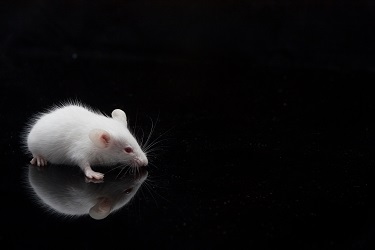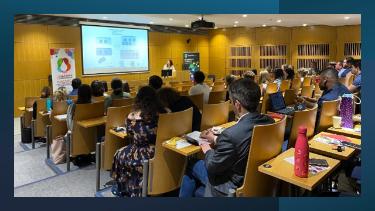Getting to the Pint of Science
The annual Pint of Science Festival took place from the 18th-20th May and it has grown significantly since it first reached Irish shores last year. The original concept for Pint of Science began in the UK in 2012 where two research scientists at Imperial College London organised an event called 'Meet the Researchers'. This allowed members of the general public who were interested in certain disease areas access to the laboratories to meet the scientists. This was such a success they decided rather than bring the public to the scientists, scientists should be brought to the public and so, in 2013, Pint of Science was born.
In Ireland, four Dublin pubs hosted the inaugural festival in 2014 led by Pint of Science director and former UCD Conway PhD student Sean Mac Fhearraigh. As a testament to the success of the festival last year, 2015 saw it expand to venues in Galway and Limerick and tickets sales in all Dublin venues sold out in less than 24 hours for certain themes. Over the course of the three nights there were superb speakers on a variety of themes from Body, Technology, Physics, and the Mind.
Systems Biology Ireland played a large role in this years event, with our researchers presenting, students and postdocs playing key organisational roles while SBI was also a sponsor of the event. PhD student Niall Quinn acted as manager of the Body theme ably assisted by fellow students Niamh O’ Driscoll, Emma Fallahi and postdoc Susan Kennedy. On Monday night SBI principal investigator Prof. Cormac Talyor gave a wonderful talk in the Body section in which he brought us from the gut to Everest and explained the surprising relationship between the two. Meanwhile in the Technology section on Monday night SBI postdoctoral researcher Dirk Fey spoke about whether personalising simulations of cancer signalling can predict clinical outcomes.
The ground breaking Pint of Science festival is going from strength to strength with events taking place in 50 cities across 9 countries this year. In Ireland alone there were 18 events taking place nationwide with over 80 speakers representing 10 Universities and 1800 free tickets sold. The festival is completely voluntarily organised, with this alone displaying the desire researchers have in bringing their work to the general public. The pace with which tickets sold also demonstrates the public’s interest in the festival. Unquestionably 2016 will be even bigger and better.

